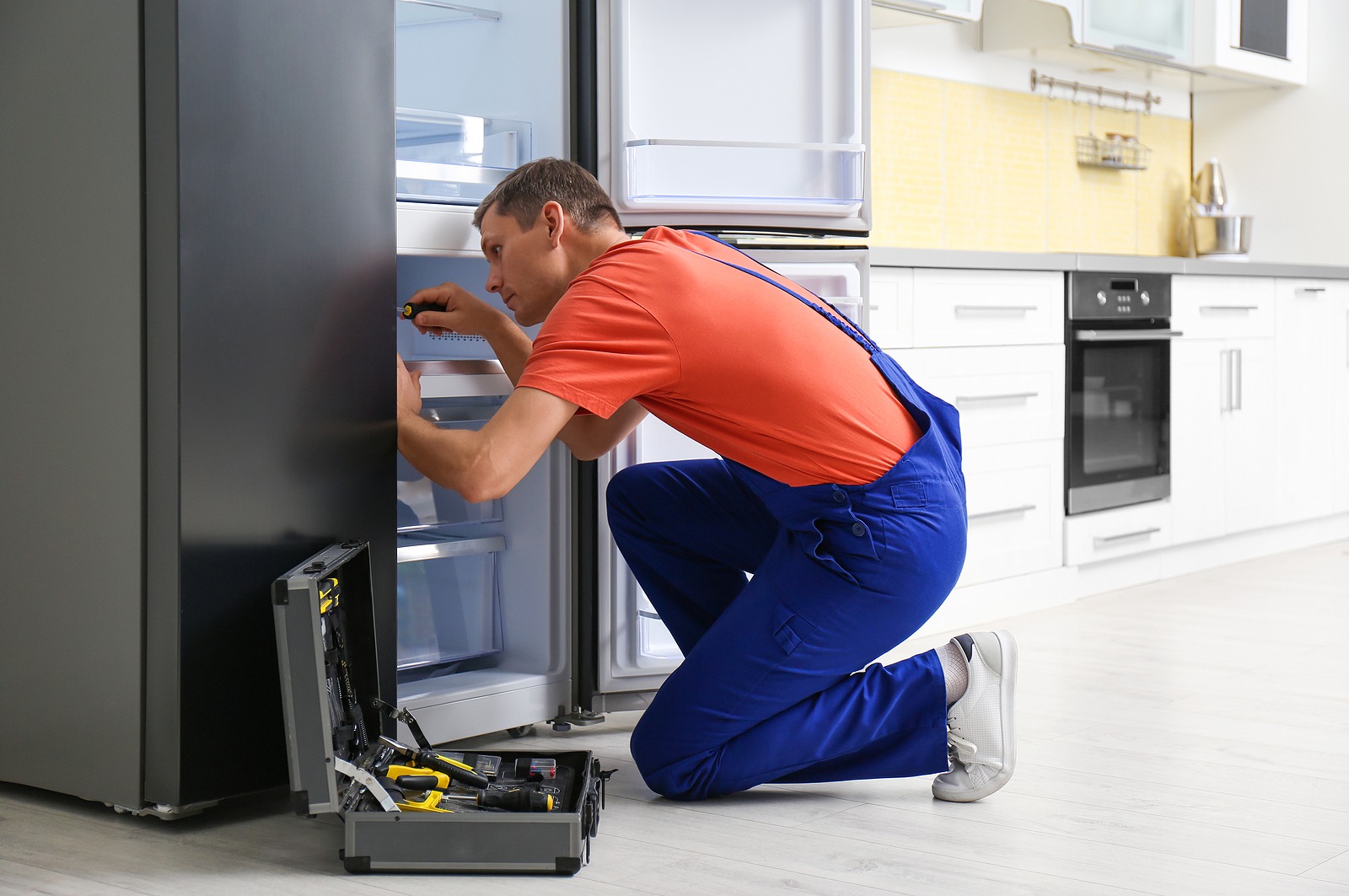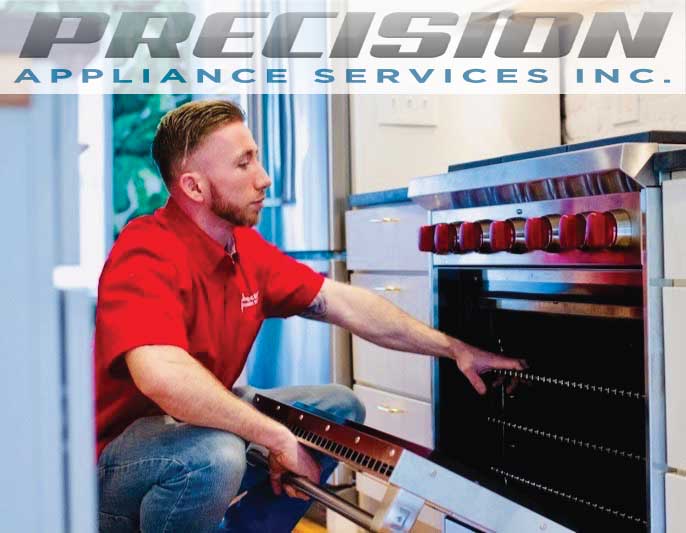Preventative Maintenance Tips – Kenmore Dryer Repair Oro Valley Dependable Refrigeration & Appliance Repair Service
Preventative Maintenance Tips – Kenmore Dryer Repair Oro Valley Dependable Refrigeration & Appliance Repair Service
Blog Article
The Ultimate Overview to Comprehending Appliance Repair Service at Home
When your fridge quits cooling or your oven rejects to warmth, it can feel overwhelming. Comprehending appliance repair in your home can save you time and cash. You'll learn to acknowledge signs, make use of necessary tools, and adhere to a systematic troubleshooting process. Before you begin, there are essential safety and security precautions you need to take right into account. What are the most usual troubles, and how can you repair them? Allow's check out the fundamentals.
Typical Device Issues and Their Signs
When your devices begin breaking down, it's necessary to recognize the indicators beforehand. Overlooking them can lead to bigger issues and pricey fixings. As an example, if your refrigerator isn't cooling effectively, you may notice cozy areas or condensation developing. This could indicate a stopping working compressor or an obstructed vent.Your dishwasher might show troubles with unclean dishes or unusual noises during cycles. If you listen to grinding or clanking, it's time to investigate.A washing equipment that will not spin or drain can leave you with soaked laundry, suggesting a stopped up drainpipe or a malfunctioning pump.Lastly, if your oven's temperature appears off or it takes forever to preheat, you may be handling a malfunctioning thermostat. By staying alert to these signs, you can deal with problems before they escalate into major repair services.
Vital Devices for Appliance Repair Work
When you're dealing with device repairs in your home, having the right tools is necessary. Fundamental hand tools like screwdrivers and pliers will aid you disassemble and take care of different home appliances, while electric testing tools ensure you're functioning securely with circuitry. Let's discuss what you require to get going on your repair service trip.
Basic Hand Devices
Having the right devices is crucial for efficient device repair at home. Beginning with a trusted screwdriver set, consisting of both flathead and Phillips types, as screws are typical in home appliance setting up. Pliers are also vital; they assist with gripping, turning, and cutting cords or tiny components. A pair of needle-nose pliers can reach difficult situations quickly. You'll need a good flexible wrench for tightening up or loosening up nuts and screws. An utility knife is convenient for reducing with product packaging or insulation. Lastly, don't forget a sturdy workbench or surface to securely arrange your devices and components. With these fundamental hand tools, you'll be well-prepared to deal with most home appliance repairs that come your means.
Electric Screening Instruments
Along with standard hand tools, electric screening tools play an important role in device repair work. These tools assist you identify electric issues and warranty home appliances work safely. A multimeter is crucial; it measures voltage, current, and resistance, allowing you to pinpoint problems swiftly. A non-contact voltage tester is an additional essential, allowing you discover real-time wires without making straight call, improving your safety. Clamp meters are terrific for measuring present flow in cables without separating them, saving you effort and time. Additionally, circuit testers can promptly examine if electrical outlets are operating effectively. By utilizing these gadgets, you'll streamline your troubleshooting process and boost your repair work skills, making home appliance maintenance a lot much easier.
Step-by-Step Overview to Diagnosing Device Issues
When your home appliance acts up, it can be frustrating, but diagnosing the problem does not have to be frustrating. You'll discover to determine usual troubles and apply effective repairing methods. Let's stroll through the steps to get your appliance back in functioning order.
Typical Device Problems

Repairing Strategies Described

Fixing Major Cooking Area Appliances: A Closer Look
Have you ever before questioned how to deal with usual problems with your cooking area home appliances? Repairing significant cooking area devices like fridges, ovens, and dishwashers can be easier than you think. Start by recognizing the issue-- whether it's a refrigerator not cooling down or a stove that won't heat up. Often, a simple reset or checking the source of power can solve the issue.For fridges, tidy the condenser coils and examine the door seals. If your oven's not home heating, inspect the burner and thermostat. Dishwashing machines might just require a clean filter or a reset to obtain them back in action. Always unplug the device before diving into repairs to assure your safety.Don' t neglect to get in touch with the individual handbook for certain fixing pointers connected to your version. With a little bit of perseverance and the right devices, you can confidently take on device repair services and save cash at the same time!

Repairing Laundry Equipments: Tips and Techniques
When your washing home appliances start acting up, it can feel overwhelming, but troubleshooting them does not need to be a problem. Begin by inspecting the power supply. Confirm the device is connected in and the electrical outlet is working. Next off, examine the door or cover switch; a faulty switch can prevent the device from operating.For washing machines, if it's not spinning, look for out of balance tons. Redistributing the clothing may fix the concern. If your clothes dryer isn't home heating, clean the dust filter and check the air vent for blockages.Listen for uncommon noises; they can show an issue. If your home appliance is dripping, examine the pipes for splits or loosened links. File any kind of error codes shown on digital screens, as they can direct you in recognizing the problem. Speak with the customer handbook for particular repairing ideas associated to your version.
Safety And Security Preventative Measures to Take During Repair works
Prior to you start any home appliance repair services, it's important to focus on security to stop crashes or injuries. First, disconnect the device or switch off the breaker to guarantee no power reaches it while you work. Usage insulated tools to reduce the risk of electric shock. Put on safety and security goggles and gloves to safeguard yourself from sharp edges or debris (Lg Dryer repair near me Dependable Refrigeration & Appliance Repair Service).Make certain your workspace is neat and well-lit, so you can see what you're doing. Keep kids and pet dogs far from the location to stay clear of disturbances and potential dangers. If you're managing gas home appliances, be added careful; check for leakages prior to proceeding.Take your time, and don't hurry with repair services. If you really feel unclear about any kind of step, it's much better to pause and research than to presume. Adhering to these preventative measures will certainly help create a more secure environment for your do it yourself appliance fixing task
When to Call a Professional for Aid
How do you understand if it's time to call in a professional for appliance fixings? If you've attempted fundamental troubleshooting without success, it's a clear indicator. As an example, if your appliance still won't begin or shows unusual sounds after resetting it, don't hesitate to seek specialist help.When you notice leaks, smoke, or melting scents, prioritize safety and call a professional immediately. These issues can result in even more significant damages or posture risks to your home.Also, if your appliance is under warranty, speaking to a specialist is typically the very best path. They can assure that repairs won't void your warranty, conserving you money in the long run.Finally, if you're unclear or uncomfortable with intricate repair work, it's a good idea to leave it to the specialists. Keep in mind, taking on difficult issues without the ideal competence can result in pricey errors. Count on an expert when doubtful!
Frequently Asked Questions
How Can I Protect Against Appliance Issues in the Future?
To stop device troubles in the future, you need to perform regular upkeep, check for wear and tear, clean filters, and prevent overloading. Remaining positive will assist expand their life-span and maintain them running efficiently.
What Are one of the most Usual DIY Device Fixing Mistakes?
You might ignore safety and security preventative measures, miss repairing steps, or utilize incorrect devices when trying DIY appliance repairs. Rushing the procedure or ignoring producer standards can result in more considerable concerns and pricey blunders. Keep patient and educated!
Just how Do I Know if a Part Needs Replacement?
You can inform if a part needs substitute by looking for uncommon sounds, leakages, or irregular performance. If the appliance battles to operate appropriately or shows visible damage, it's most likely time for a substitute.
Can I Utilize Generic Components for Device Fixes?
Yes, you can utilize common parts for home appliance repairs, yet ascertain they work - Washer dryer repair service Dependable Refrigeration. Common components could conserve you money, however they could impact performance or long life, so evaluate your options very carefully before making a decision
What Warranties Cover Appliance Services?
The majority of appliance service warranties cover fixings for producing defects, yet they commonly exclude damages from abuse. Inspect your service warranty terms very carefully, as some may require making use of qualified technicians and original components for insurance coverage to remain valid.
Report this page